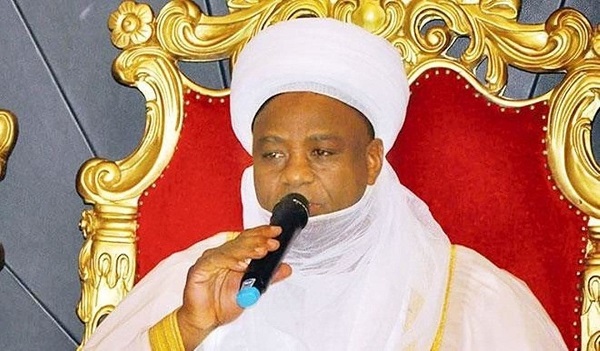
In a call to ensure ethical governance and a more transparent political landscape, the Sultan of Sokoto, Alhaji Muhammad Sa’ad Abubakar, has urged religious leaders to communicate the truth to political leaders.
This appeal was made on Monday in Abuja during the bi-annual review meeting of religious leaders on primary health care delivery.
The meeting, organised by the Federal Ministry of Health in collaboration with the National Primary Health Care Development Agency (NPHCDA), aimed to assess the activities of the agency, with a focus on routine vaccination and COVID-19 vaccines.
Sultan Abubakar stressed the significance of honesty and transparency in interactions between religious and political leaders. Given their influential positions, religious leaders possess the capacity to exert a profound impact on society. Advocating for truthfulness and transparency, they can contribute to the promotion of ethical governance and the overall well-being of their communities.
“Effective communication between religious and political leaders can foster understanding, collaboration, and the pursuit of common goals. When religious leaders convey the truth to political leaders, they can help ensure that decisions and policies are based on accurate information and align with moral and ethical principles,” he emphasised.
The president of CAN (Christian Association of Nigeria), Archbishop Daniel Okoh pledged greater collaboration with the NPHCDA to enhance access to healthcare, particularly for those in rural areas. Okoh recognised the pivotal role that religious leaders play in advocacy and sensitisation. He committed to deepening the collaboration with primary healthcare management and holding those in authority accountable for healthcare improvements in Nigeria.
The coordinating Minister of Health and Social Welfare, Prof. Ali Pate applauded the substantial contribution of the faith community to healthcare delivery in the country. He acknowledged the efforts of religious organisations in providing healthcare services at primary, secondary and tertiary levels. Pate underscored the essential partnership between the government and the faith community, emphasising that the government alone cannot meet all healthcare needs.
Highlighting the dynamic nature of the medical field, Pate stressed the need for regular collaboration and updates among healthcare providers and religious leaders. By fostering knowledge sharing and staying informed about current developments, world-class healthcare services can be ensured for Nigerians.
The executive director of the National Primary Health Care Development Agency (NPHCDA), Dr. Faisal Shuaib called on religious leaders to actively contribute to the enhancement of primary healthcare and holistic well-being in the nation. Shuaib emphasised the role of religious leaders in guiding and inspiring their communities and highlighted the spiritual significance of health.
Addressing the specific focus of the meeting on preventing cervical cancer through the introduction of the human papillomavirus (HPV) vaccine, Shuaib urged religious leaders to endorse and advocate for vaccination within their congregations. He underscored the strength of unity and collective action in promoting health and well-being, advocating for collaboration between faith communities and the medical community to achieve impactful results.
The meeting saw the presence of faith body leaders, health development partners and senior management from the Federal Ministry of Health and the NPHCDA. Its aim was to enhance religious leaders’ understanding of immunisation and other Primary Health Care (PHC) programs in Nigeria, raise awareness about the benefits of immunisation, address religious barriers affecting immunization uptake and PHC services and gain religious leadership support for health promotion and strengthening.
In a society where religious leaders wield substantial influence, their advocacy for truth, transparency and healthcare promotion has the potential to create positive change and better governance for the nation.

